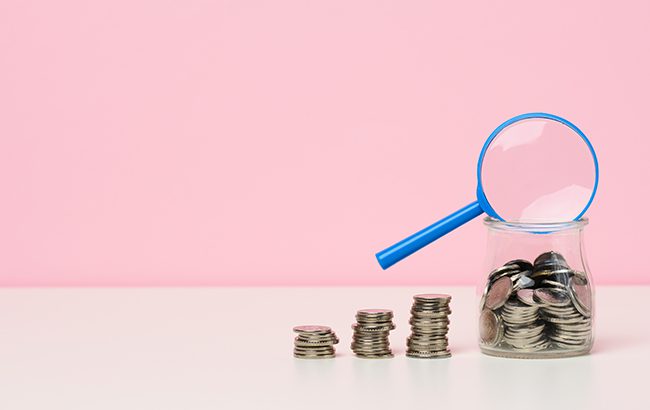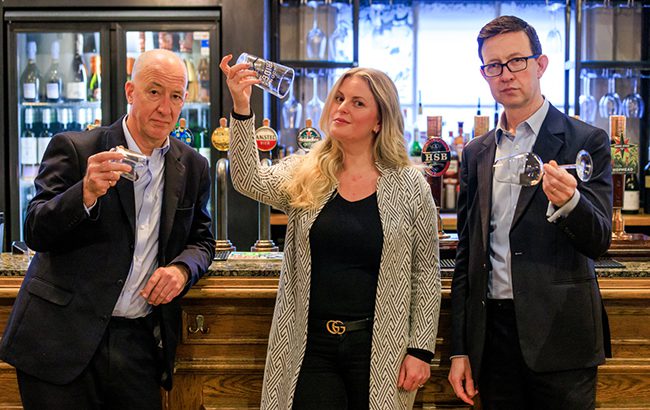Double-digit duty rise could ‘decimate’ on-trade
By Nicola CarruthersThe UK government’s U-turn on freezing duty on beer, wine and spirits has been widely condemned by the industry. The Spirits Business speaks to major players who highlight how the decision could affect consumers and the trade.

Consumers in the UK could soon be forced to pay higher prices for alcohol after the UK government reversed plans to freeze duty rates on beer, wine and spirits. The government had previously pledged in its ‘mini‐budget’ to freeze duty on beer, wine and spirits from February 2023.
However, on 17 October, the UK’s new chancellor of the Exchequer, Jeremy Hunt, cancelled the planned freeze on alcohol tax in a move that Miles Beale, chief executive of the Wine and Spirit Trade Association (WSTA), described as “extremely disappointing”.
The U‐turn is expected to save the government £600 million (US$677m) a year. Hunt had scrapped the majority of his predecessor’s plans for huge tax cuts.
Karl Mason, co‐founder of spirits producer Masons of Yorkshire, said he was “disappointed and dismayed” by the decision.
“In the midst of an economic crisis, the drinks industry needs not just more support, but more stable governance and sure leadership, but unfortunately that is more than the current government has been able to deliver,” he said.
“Our business needs stability to be able to adequately plan, and deliver reasonably priced spirits to our customers and communities, so this decision naturally puts further pressure on both businesses like us and the end consumer too.”
Jeremy Parsons, CEO of Cotswolds Distillery, added: “As a relatively young business in the spirits category, we are investing heavily in product development, brand building and our infrastructure. The news from the chancellor puts additional pressure onto the already increasing cost of producing superior‐quality products for the end consumer, and we urge the chancellor to reconsider plans to scrap the duty freeze.”
The Scotch Whisky Association (SWA) partnered with the WSTA and the British Beer and Pub Association (BBPA) to issue a joint call to return to a freeze on alcohol duty. A tax increase on alcohol had been frozen annually since March 2017, the SWA’s director of strategy and communications, Graeme Littlejohn, said.
Over the past five years, during a stable period for alcohol duty, revenue has increased by 18%. In 2017, the Office for Budget Responsibility forecast that revenue would increase by just 13% over the same period. “That’s after continued freezes and a global pandemic,” he added. “If you don’t increase it, the Treasury gets more revenue.”
The freeze on alcohol duty was welcomed by all sectors of the hospitality industry, which is going through a tough time, Littlejohn said.
“The Scotch whisky industry is seeing rising energy prices, increased supply‐chain pressures, and the decision to freeze gave stability and confidence. The U‐turn on duty took stability and competence away from the Scotch whisky industry ahead of a very busy festive period.”
Littlejohn said the increase could “be in the region of 16%, which would be the highest since excise duty was introduced in 1643”. The impact on the industry would be “pretty stark”, he added. “We don’t think that a 16% tax increase on spirits is fair on consumers who are already paying a significant rate of tax compared with like‐for‐like markets either in the G7 or across the European Union.”

Tax burden
He also noted that the tax burden on Scotch whisky is 70%. “This tax rise would take it to 78%, and you know when four pounds in every five pounds spent on Scotch whisky in the UK is going directly to the Treasury in taxation – that leaves the industry with £1 out of five to invest and to pay salaries, to buy the raw materials to make Scotch whisky, and to grow the industry in general,” Littlejohn said.
“That’s not a very big profit tool to reinvest in the UK economy, and that’s why it’s important the chancellor goes back to that original decision.”
Miles Beale, chief executive of the WSTA, said historically alcohol duties would go up by inflation every year. The retail price index inflation was published at 12.6% in September 2022.
“That sort of level of increase would be absolutely business‐killing,” Beale warned. “It’s still going to be potentially double‐digit figures, and that would definitely be too much.”
As such, the three trade bodies are asking for any increase to be kept as low as possible, and for it to “not come in before Christmas”, Beale said. “We’d be extremely worried if they announced it was coming in this year.”
He expects that a tax increase is likely, which is predicted to be announced during Hunt’s full autumn statement, which was moved from 31 October to 17 November after the appointment of new UK prime minster Rishi Sunak. It will be upgraded from an economic plan to a full statement, which suggests there will be further tax decisions made.
The planned increase comes ahead of the UK government’s overhaul of the alcohol‐tax system in August 2023. Within the proposal is the Small Producers’ Relief scheme, which will only apply to products under 8.5% ABV. This threshold means distillers and wineries are barred from accessing the scheme and its benefits. The WSTA would like to see this relief extended to all producers.
The increase would also affect consumer demand, said Beale, particularly at a time when consumers are dealing with the cost‐of‐living crisis.
The Night‐Time Industries Association (NTIA) said a double‐digit increase to spirits and other categories would “decimate already struggling independent clubs, pubs, bars and restaurants”. Thousands of jobs and businesses are at risk, the trade body warned.
“According to NTIA member trading figures, we are starting to see the true impacts of cost inflation on our customer behaviour; with less disposable income, we are seeing businesses trading 15% down on average across the sector compared to 2019,” said Michael Kill, CEO of NTIA.
“Costs are up over 30%, and the projected impact of alcohol duty without a retail price increase will reduce the operating liquor margin by more than 5%, pushing thousands of independent businesses into the red. We need the government to extend business‐ rates relief, restructure the energy subsidy as a clear cap on energy costs, and cut VAT across the board, leaving no one behind.”
The industry will be keeping a close eye on the next statement from the chancellor. There’s little doubt that an increase could have a catastrophic effect on future spirits growth in the UK, and put additional strain on an already‐struggling on‐trade.
Related news
